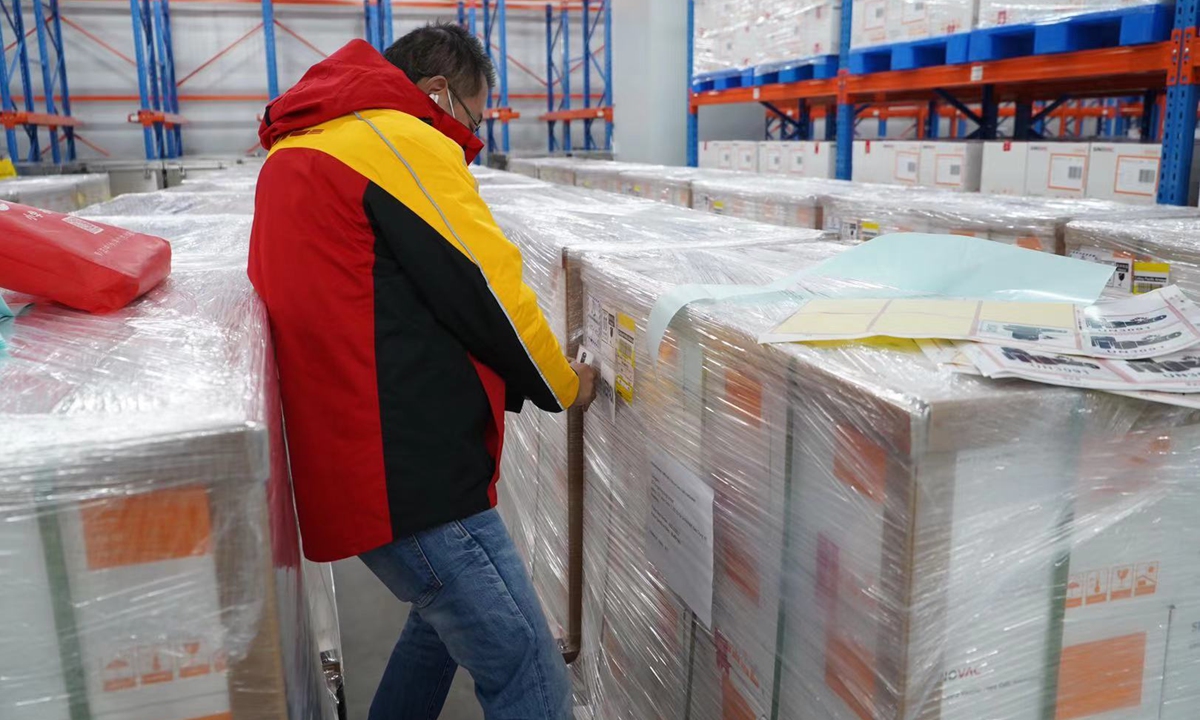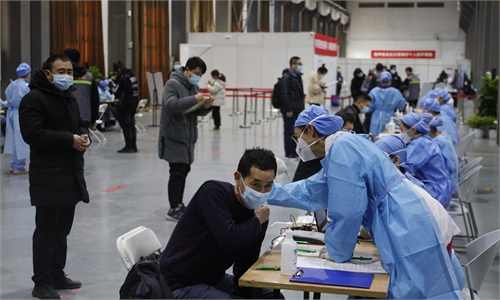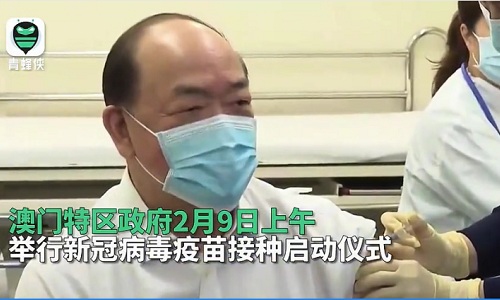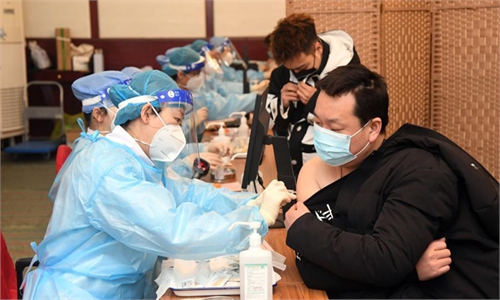
A worker from Chinese mainland vaccine producer Sinovac checks shots of the company's COVID-19 vaccine CoronaVac that will leave storage in Beijing for Hong Kong on Wednesday. Photo: Courtesy of Sinovac
At a press conference on the COVID-19 vaccination program held on Thursday, the HKSAR government said the first batch of 1 million doses of the Sinovac vaccines will arrive on Friday afternoon, and the first batch of 1 million doses co-developed by Chinese company Fosun and German vaccine producer BioNTech will arrive by the end of February.
Authorities said they will open online reservation for vaccinations next Tuesday.
Priority groups include people aged 60 or above, and people who live or work at care centers. Vaccinations will then extend to those between 16 and 59 with underlying diseases. Residents under 60 will then be vaccinated, said the Hong Kong government.
The vaccination is voluntary and the more people who receive doses, the stronger protection the public can get. Since the vaccines were developed quickly and rare adverse effects cannot be ruled out, a fund has been set up and HK$1 billion ($129 million) allocated to deal with potential cases.
Lam said on Facebook that she will take the Sinovac vaccine, noting the vaccination program, to be available next week, marks a new milestone in Hong Kong's fight against the epidemic.
Thursday is the first day on which Hong Kong eased restrictions on social distancing after more than two months, meaning residents can dine in at restaurants in the evening and attend cinemas again.
But Lam warned the public against relaxing vigilance.
She reminded Hong Kong residents to scan health codes when entering designated areas and reiterated that the travel records of users are only stored in their mobile phones, so their personal whereabouts will not be disclosed and the system will not violate their privacy.
Global Times



